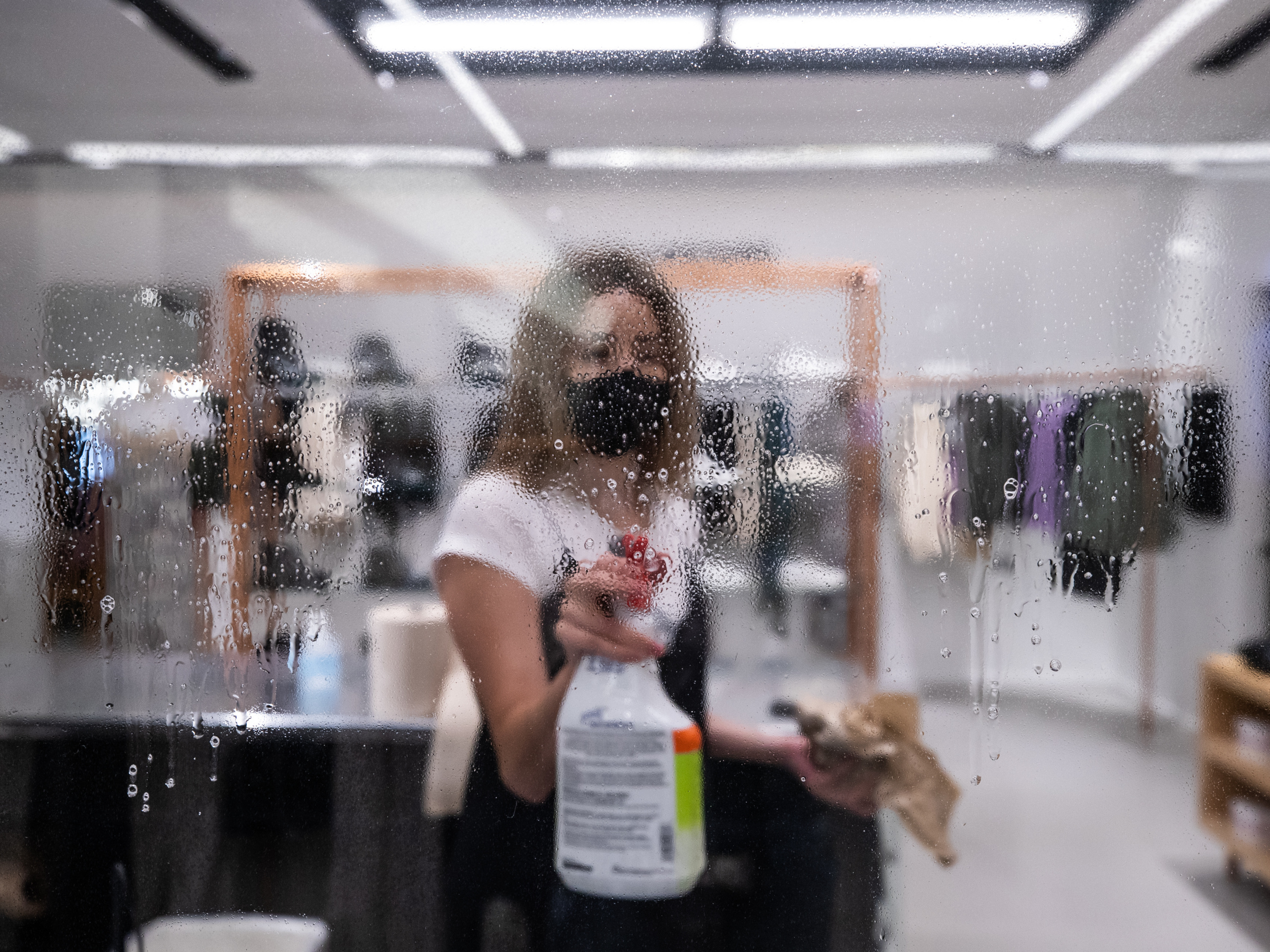Plastic shields put up in schools, stores, and order windows haven’t been offering much protection and may actually be facilitating the spread of COVID.
New evidence has emerged showing that the plastic barriers interrupt air flow and redirect germs from one person to another.
The barriers might stop large particles from sneezes and coughs, but evidence shows smaller aerosol particles are able to move around the plastic.
Linsey Marr, professor of civil and environmental engineering at Virginia Tech, spoke to the New York Times and compared the virus to cigarette smoke.
One way to think about plastic barriers is that they are good for blocking things like spitballs but ineffective for things like cigarette smoke…The smoke simply drifts around them…
Linsey marr
Marr also commented on shields in classrooms, saying “If you have a forest of barriers in a classroom, it’s going to interfere with proper ventilation of that room”. “Everybody’s aerosols are going to be trapped and stuck there and building up, and they will end up spreading beyond your own desk”, she added.
Multiple studies conducted this year have found that plastic barriers in classrooms impede air flow and are correlated with increased transmission of COVID-19. Dead zones with high concentrations of particles are created when shields have a build-up of viral particles.
Scientists advise using measures such as improving ventilation, wearing masks, using air filtering machines, and getting vaccinated when possible.



